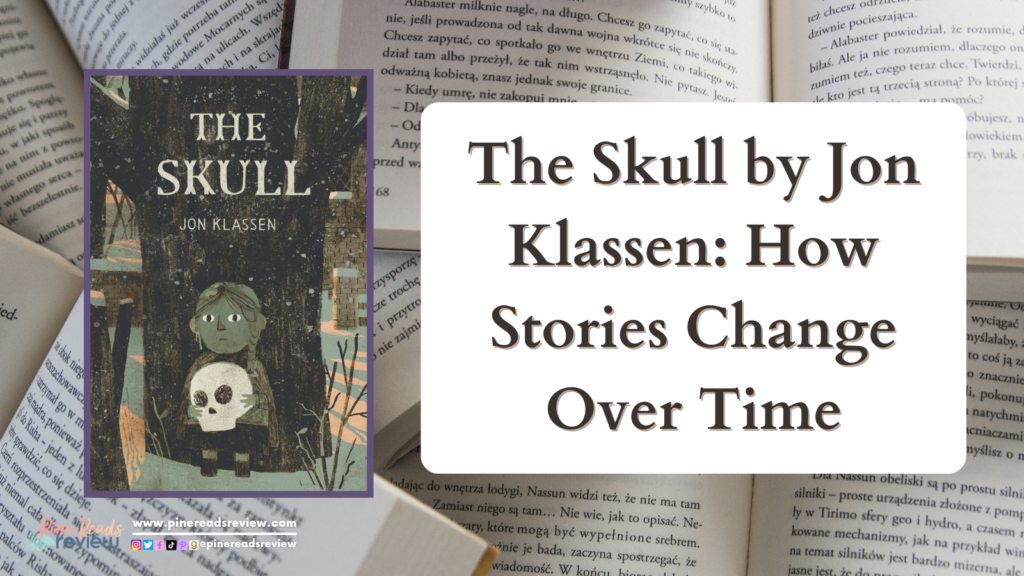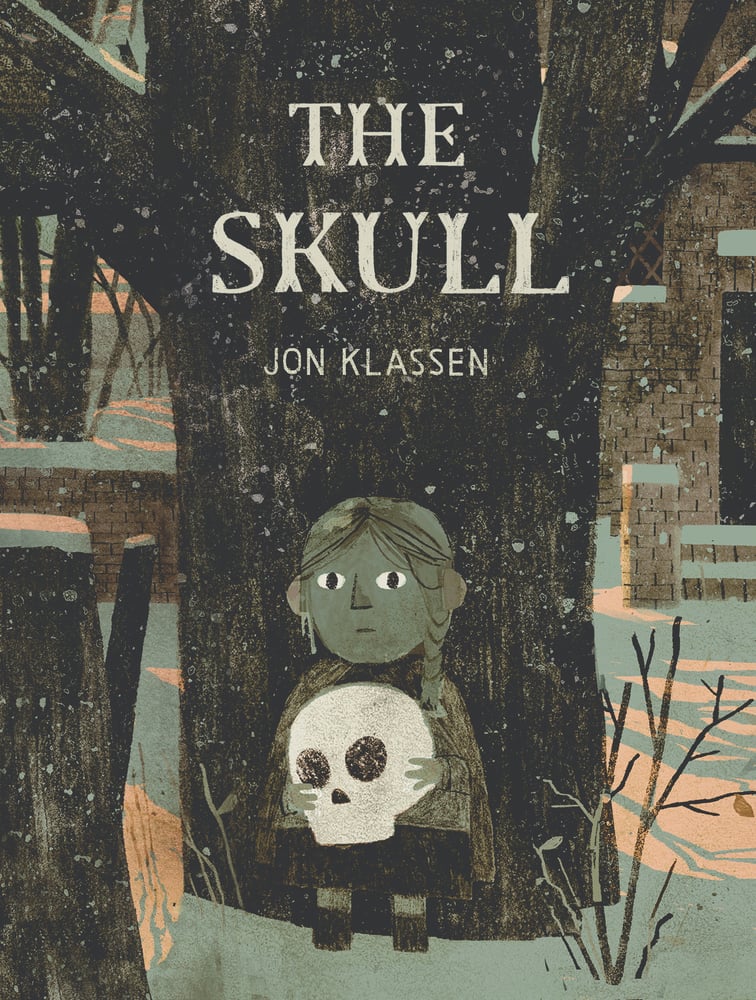
Different storytellers bring their own interpretations to stories, leading to variations in how they are understood and retold. Each retelling can introduce new layers of meaning, resulting in a rich tapestry of interpretation. According to folklorist Ronald M James, “Folklore is held in joint custody by everyone.” We as the story bearers have the clearance to alter them and make them our own, which brings us to The Skull.

The Skull by John Klassen is a beautifully illustrated adaptation of a Tyrolean folk tale of the same name. The story follows Otilla, who runs away from home in the middle of the night and stumbles upon a manor in the middle of the woods. There, she meets a talking skull, learns his secret, and makes a crucial decision for the both of them. It’s spooky, it’s sweet, and its author’s note is illuminating. In the note, Klassen recounts reading the original story in a library in Alaska, putting it back on the shelf and filing it away in his subconscious. He came back to the original a year later and found that the version he remembered (the version he published), had a completely different ending. In the year between his first and second reading, Klassen’s brain had changed the story. This is why everyone should read The Skull. Not just because it is excellent, but because for a moment I felt like I was part of the great lineage of storytellers and audiences.
Storytelling in the oral tradition dates back to the earliest human societies, where stories were passed down through generations via spoken word. Some ancient cultures were rigid about the accuracy of the transmission of the story; some were more fluid and allowed the tale to evolve. In the latter cultures, storytellers would adjust the narrative based on their audience, cultural context, personal style, or like Klassen, because they forgot. I think approaching stories this way is refreshing. Reading something once, or hearing it once, and then letting your brain naturally fill in the gaps as you forget the details, can open new possibilities for old stories. I urge you to try it. Go find a folktale, a TV episode, or a book of short stories. Read it. Forget it. Then make it your own.
Kasey Taylor, Pine Reads Review Writer
James, Ronald M. The Folklore of Cornwall the Oral Tradition of a Celtic Nation. University of
Exeter Press, 2022.